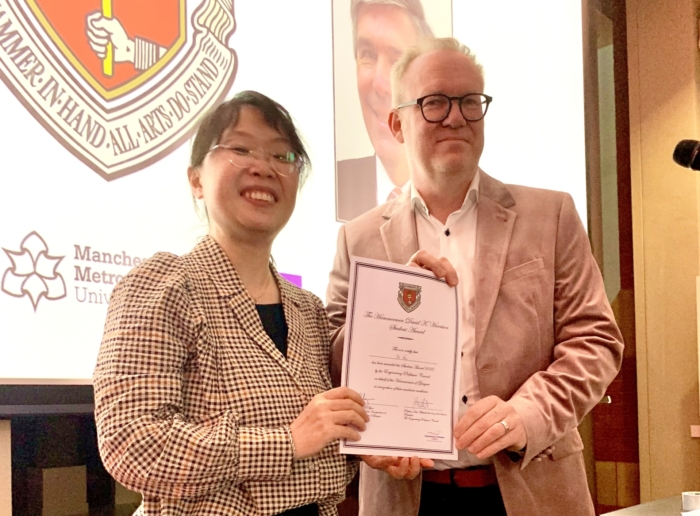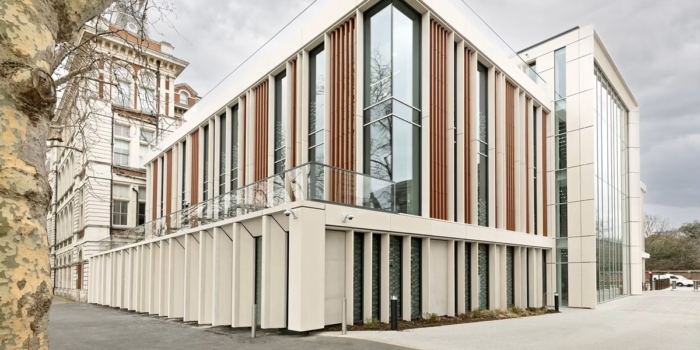In the run up to the general election on 7th May, colleagues at the British Universities Finance Group (BUFDG) have prepared the following summary of what each political party has in store for the higher education sector. To save us time clicking separately into each party’s manifesto, we’ve reproduced it here for you…
Conservatives
1. “We have boosted research and development tax credits and we will continue to support our network of University Enterprise Zones, ensuring that Britain’s world-beating universities are able to make money from the technology they develop.
2. “We will reform the student visa system with new measures to tackle abuse and reduce the numbers of students overstaying once their visas expire. Our action will include clamping down on the number of so-called ‘satellite campuses’ opened in London by universities located elsewhere in the UK, and reviewing the highly trusted sponsor system for student visas. And as the introduction of exit checks will allow us to place more responsibility on visa sponsors for migrants who overstay, we will introduce targeted sanctions for those colleges or businesses that fail to ensure that migrants comply with the terms of their visa.
3. “This year, for the first time, over half a million people have been admitted to our universities, including a record proportion of students from disadvantaged backgrounds. From September, we will go even further, abolishing the cap on higher education student numbers and removing an arbitrary ceiling on ambition. Our reforms to university funding mean you do not have to pay anything towards tuition while studying, and only start paying back if you earn over £21,000 per year. We will ensure the continuing success and stability of these reforms, so that the interests of both students and taxpayers are fairly represented. We will also introduce a national postgraduate loan system for taught masters and PhD courses. We will ensure that universities deliver the best possible value for money to students: we will introduce a framework to recognise universities offering the highest teaching quality; encourage universities to offer more two-year courses; and require more data to be openly available to potential students so that they can make decisions informed by the career paths of past graduates.
4. “We will maintain our universities’ reputation for world-class research and academic excellence. Through the Nurse Review of research councils, we will seek to ensure that the UK continues to support world-leading science, and invests public money in the best possible way. And we will encourage the development of online education as a tool for students, whether studying independently or in our universities.”
Labour
1. “Labour will never cut Britain off from the rest of the world. Our economy and our society benefit from the talent and investment of people who come here, including university students coming to study. But the system needs to be controlled and managed so that it is fair… Short-term student visitor visas have dramatically increased, so we will tighten the system to prevent abuse, whilst welcoming overseas university students who bring billions into Britain. And we will keep the cap on workers from outside the EU.
2. “Labour will cut tuition fees from £9,000 to £6,000 a year, funded by restricting tax relief on pension contributions for the highest earners and clamping down on tax avoidance. We will tackle the growth of unpaid internships because thousands of highly able young people who cannot afford to work for free are locked out of too many of our professions. We will introduce a Compulsory Jobs Guarantee, paid for by a bank bonus tax. It will provide a paid starter job for every young person unemployed for over a year, a job which they will have to take or lose benefits. For too long we have failed to provide a system which makes the best use of the talents of young people.
3. “We have been quick to seize the opportunities of the internet. We have big strengths to build upon: world-leading universities, an outstanding science research base, an open
economy with one of the highest rates of foreign direct investment in the world, and many successful global companies.
4. “We will make sure that apprenticeships can lead to higher level qualifications by creating new Technical Degrees and supporting part-time study. They will be co-funded, co-designed and co-delivered by employers and they will be the priority for expansion within our university system.”
Liberal Democrats
1. “Liberal Democrats have ensured that no undergraduate student in England has to pay a penny up front of their tuition fees. Students in England do not have to pay anything until they are earning over £21,000 per year – a figure which will increase in line with earnings – and over that income, monthly repayments are linked to earnings. This means only high-earning graduates pay their tuition fees in full. We now have the highest university application rates ever, including from disadvantaged students.
2. “But we need to ensure higher education is accessible to all those who can benefit, including at postgraduate level. Liberal Democrats in government secured the first ever income-contingent loans scheme for graduate degrees, which we will protect and seek to extend.
3. “We will:
a. Ensure that all universities work to widen participation across the sector, prioritising early intervention in schools and colleges. This will include running summer schools and setting up mentoring programmes between students or alumni and school pupils.
b. Require universities to be transparent about their selection criteria.
c. Work with university ‘mission groups’ to develop a comprehensive credit accumulation and transfer framework to help students transfer between and within institutions, enable more part-time learning, and help more people to complete qualifications.
d. Improve the Key Information Set and explore the option of a standardised student contract. We will legislate to reform regulation of the higher education sector, improving student protection.
e. Establish a review of higher education finance within the next Parliament to consider any necessary reforms, in the light of the latest evidence of the impact of the existing financing system on access, participation (including of low-income groups) and quality. The review will cover undergraduate and postgraduate courses, with an emphasis on support for living costs for students, especially from disadvantaged backgrounds.
4. “Ensure the UK is an attractive destination for overseas students, not least those who wish to study STEM subjects (Science, Technology, Engineering and Maths). We will reinstate post-study work visas for STEM graduates who can find graduate-level employment within six months of completing their degree.”
Green Party
1. “End undergraduate tuition fees.
2. “Cancel student debt issued by the Student Loans Company and held by the government.
3. “Reintroduce student grants costing £2.2 billion over the Parliament. In the longer run we would support student living costs through the Basic Income.
4. “In the longer term, consider scrapping fees for academic postgraduate courses.
5. “Restore access to lifelong learning by supporting mature students and their families. We will reverse the 20-year programme of dismantling the lifelong learning sector.
6. “Reintroduce the block grant to universities. It is essential that teaching and learning can be supported effectively across science and the humanities.
7. “Encourage universities and pension funds such as the USS to divest from fossil fuel companies.
8. “Support the 10:1 ‘fair pay campus’ campaign. We are committed to ending the scandal of VCs paying themselves £300,000 a year while cleaners on the national minimum wage have to resort to food banks.”
Scottish National Party (SNP)
1. “We will guarantee the continuation of free university education in Scotland and support the reduction of tuition fees across the UK.
2. “We will keep university education in Scotland free and have increased the minimum income for our poorest students to £7,500 this year.
3. “We will continue to work closely with our universities to maintain their position of global excellence.
4. “Scotland needs an immigration policy suited to our specific circumstances and needs. In particular, we wish to see the reintroduction of the post-study work visa so students who have been educated in Scotland can spend 2 years working here after their studies and can contribute to growing our economy.
5. “We know that building a high-skill, connected Scotland is essential if we are to maximise our nation’s economic potential. That is why we are investing in our people, infrastructure and assets, for example, by working to widen access to higher education.”
UK Independence Party (UKIP)
1. “Waive tuition fees for science, technology, engineering, mathematics and medicine (STEMM) subjects at university, providing that graduates work in their discipline in the UK and pay tax for five years after graduating.”
And you can read about what they’ve been up to at the Campaign for Science and Engineering to find out about party candidates’ views on investment in science and engineering here.




